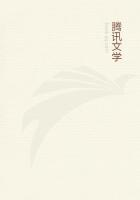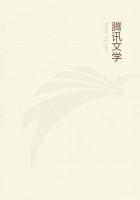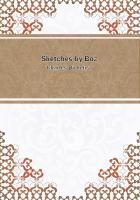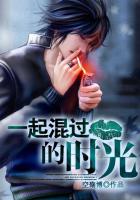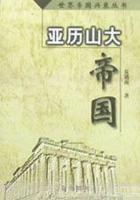"Or perhaps she may be married," suggested my mother; "and Van Brandt may be the name of her husband." The idea of her being a married woman had something in it repellent to me. I wished my mother had not thought of that last suggestion. I refused to receive it. I persisted in my own belief that the stranger was a single woman. In that character, I could indulge myself in the luxury of thinking of her; I could consider the chances of my being able to trace this charming fugitive, who had taken so strong a hold on my interest--whose desperate attempt at suicide had so nearly cost me my own life. If she had gone as far as Edinburgh (which she would surely do, being bent on avoiding discovery), the prospect of finding her again--in that great city. and in my present weak state of health--looked doubtful indeed. Still, there was an underlying hopefulness in me which kept my spirits from being seriously depressed. I felt a purely imaginary (perhaps I ought to say, a purely superstitious) conviction that we who had nearly died together, we who had been brought to life together, were surely destined to be involved in some future joys or sorrows common to us both. "I fancy I shall see her again," was my last thought before my weakness overpowered me, and I sunk into a peaceful sleep. That night I was removed from the inn to my own room at home; and that night I saw her again in a dream. The image of her was as vividly impressed on me as the far different image of the child Mary, when I used to see it in the days of old. The dream-figure of the woman was robed as I had seen it robed on the bridge. She wore the same broad-brimmed garden-hat of straw. She looked at me as she had looked when I approached her in the dim evening light. After a little her face brightened with a divinely beautiful smile; and she whispered in my ear, "Friend, do you know me?" I knew her, most assuredly; and yet it was with an incomprehensible after-feeling of doubt. Recognizing her in my dream as the stranger who had so warmly interested me, I was, nevertheless, dissatisfied with myself, as if it had not been the right recognition. I awoke with this idea; and I slept no more that night. In three days' time I was strong enough to go out driving with my mother, in the comfortable, old-fashioned, open carriage which had once belonged to Mr. Germaine. On the fourth day we arranged to make an excursion to a little waterfall in our neighborhood. My mother had a great admiration of the place, and had often expressed a wish to possess some memorial of it. I resolved to take my sketch-book: with me, on the chance that I might be able to please her by making a drawing of her favorite scene. Searching for the sketch-book (which I had not used for years), I found it in an old desk of mine that had remained unopened since my departure for India. In the course of my investigation, I opened a drawer in the desk, and discovered a relic of the old times--my poor little Mary's first work in embroidery, the green flag! The sight of the forgotten keepsake took my mind back to the bailiff's cottage, and reminded me of Dame Dermody, and her confident prediction about Mary and me. I smiled as I recalled the old woman's assertion that no human power could "hinder the union of the kindred spirits of the children in the time to come." What had become of the prophesied dreams in which we were to communicate with each other through the term of our separation? Years had passed; and, sleeping or waking, I had seen nothing of Mary. Years had passed; and the first vision of a woman that had come to me had been my dream a few nights since of the stranger whom I had saved from drowning. I thought of these chances and changes in my life, but not contemptuously or bitterly. The new love that was now stealing its way into my heart had softened and humanized me. I said to myself, "Ah, poor little Mary!" and I kissed the green flag, in grateful memory of the days that were gone forever. We drove to the waterfall. It was a beautiful day; the lonely sylvan scene was at its brightest and best. A wooden summer-house, commanding a prospect of the falling stream, had been built for the accommodation of pleasure parties by the proprietor of the place. My mother suggested that I should try to make a sketch of the view from this point. I did my best to please her, but I was not satisfied with the result; and I abandoned my drawing before it was half finished. Leaving my sketch-book and pencil on the table of the summer-house, I proposed to my mother to cross a little wooden bridge which spanned the stream, below the fall, and to see how the landscape looked from a new point of view. The prospect of the waterfall, as seen from the opposite bank, presented even greater difficulties, to an amateur artist like me, than the prospect which he had just left. We returned to the summer-house. I was the first to approach the open door. I stopped, checked in my advance by an unexpected discovery. The summer-house was no longer empty as we had left it. A lady was seated at the table with my pencil in her hand, writing in my sketch-book! After waiting a moment, I advanced a few steps nearer to the door, and stopped again in breathless amazement. The stranger in the summer-house was now plainly revealed to me as the woman who had attempted to destroy herself from the bridge! There was no doubt about it. There was the dress; there was the memorable face which I had seen in the evening light, which I had dreamed of only a few nights since! The woman herself--I saw her as plainly as I saw the sun shining on the waterfall--the woman herself, with my pencil in her hand, writing in my book! My mother was close behind me. She noticed my agitation.
同类推荐
热门推荐
血之诱惑:吸血鬼家族
血欲(一)橙红落日之下,面对眼前这一座建于群山之间透浓浓欧美风的校园,有谁会想到这里曾是血族与血猎的激战之地。十年前的8.6号,也是在这里血族之主与血猎总部的首脑共签订和平协议,以此为证,互不侵犯。血族可以优化到放弃对金钱的追逐,但…对鲜血的饥渴绝对是疯狂并且无法遏制。血猎总部虽制出了能够阻止被咬后成为丧尸的血清,但也不可能蠢到送同胞去当午餐,于是便以献血的名义到处征血(不然你以为献的那么多血怎么去了?人类的爱心可是很巨大的~)正因如此,血族这个不老不死的贵族只数基本保持不变,请听清,我说的是“基本”…天才宝宝:爹地婚了没
她时隔五年带个宝宝刚回国不过几天就把孩子丢了,找遍整个城市,发现宝宝竟然在一个陌生男人的相亲大会现场!还在,给搞破坏?岂有此理!她上去给了那男人一个耳光。唔,等等……这男的不是……她宝宝的爹地吗?莫非他知道这孩子是他的了?他难道认出她来了吗?他会不会还记得五年前她喝醉酒推倒他的事?趁他还没发现他们母子的身份之前快走!她抱着孩子就要溜之大吉,他一个‘壁咚’将她给挡在了门口。“你走不了了。”毛泽东瞩目的文人骚客
这部著作同属“毛泽东瞩目的风云人物”丛书的姊妹篇,共计约两百余万字,可谓洋洋大观。值得一提的是,出版这套丛书的主旨,在于研究、探索毛泽东思想发展的轨迹,研究、探索一代伟人毛泽东的历史观、革命现、世界观,透过青年毛泽东、中年毛泽东、老年毛泽东对中国乃至世界若干著名风云人物的评价,力图抒发领袖胸怀,展现巨人风采,并从中窥视毛泽东思想的起源及其发展的历程,以供广大读者借鉴。从这个意义上说.长江文艺出版社确定这个重大选题,出版这套丛书是有魄力和远见的,显而易见,这套书颇具可读性,也是极富收藏和研究价值的。


